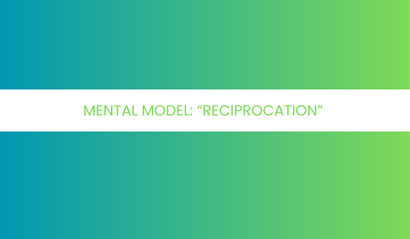Mental Model: Reciprocation
Reciprocation is one of the most powerful social forces that shape human behavior. It is a fundamental principle that influences how we interact with others, make decisions, and even fall prey to persuasion tactics. Understanding the psychology behind reciprocation can help us navigate our personal and professional relationships more effectively. In this blog, we will…






